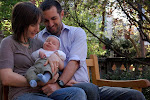



Today was the champion’s graduation ceremony. The “champions” are pastors, archdeacons, or other church leaders who have been selected from their diocese to be trained in the Chalmers’ method of leading savings groups. These champions, normally three leaders from each of the ten diocese in Rwanda, have attended all 4 of Malu’s trainings, have trained others in the methodology of starting savings groups, and have formed groups themselves.
So today in celebration of that a graduation ceremony and luncheon was given in their honor. Several songs were sung in Kinyarwanda, prayers were said, and lots of people spoke, including Rob who also tried his hand at Kinyarwanda. Bishop Augustin Mvunabandi of Kigeme gave the main address. He used Acts chapter 6:1-7 as the basis of his talk. From what I gathered from our translator, Dianna, he urged the champions to take their training and role as leaders of the savings groups seriously and to view it as a critical role of the church. We consistently hear the same from Malu and others who are well versed in the savings-led approach to poverty alleviation. A key element of the training that the champions receive is that these groups provide a means of restoration for their members: a restoration of what Chalmers teaches are the four main relationships of man; man with God, others, creation, and himself. HOPE, Chalmers, and partner organizations see helping people along the way to restoring these relationships through the use of microfinance programs as a ministry that will bring people closer to God. And that churches should not neglect the physical need of people but should give them tools to aid restoration. Chalmers, a research center located in Rome, GA, has done a great job integrating christian principles within the microfinance framework.
In our short time here, we have heard many stories of which I’m sure our blogs will be filled with later, of group members paying each others’ debts, HIV/AIDS groups saving solely to care for their own sick, and the healing that takes place among groups comprised of differing ethnicities. The community and hope that is built up in these groups is amazing. Someone told us recently that it is incredibly difficult to have hope for something that you have never known. Saving seems like such a reasonable practice to do if you have very little and want to improve your situation in the future, but from their point of view, they have not known things to be better. They may want to pay the school fees in order to send their child to school, but once you give them the tools to form a savings group they can actually begin to hope for and see a way in which they can sustainably do so. Marie Jean, a woman we will write of more in the coming months, works for HOPE in the provincial office near the airport. She has been involved with savings groups for a long time. Her first savings group started off with each of the members saving only 100F a month (not even 20 cents) and now just a few years later, they are contemplating the purchase of a used vehicle in order to resell it.
The savings groups are a powerful way of allowing the poorest people to begin to build their way out of poverty, to believe in themselves and their neighbors rather than relying on foreign aid, and for communities to come together and help each other with what little they have. The savings led approach seems to have the greatest impact while maintaining the base value of first “doing no harm” in communities. There are many different methodologies of working a savings group including; raskas, askas, silc etc. which we are still mastering and will write more on later. But however they choose to operate; these groups are making a real difference in the lives of many families. (These groups have originally targeted women as the ideal members of savings groups due to their smaller probability of blowing the money on women and alcohol, and more likely to care about the health and education of their children; however things are beginning to change, Emmanuel who joined us for tea last Sunday said, “the men need to start learning to save, it is dangerous for the women to know how to save and for the men not to.” I don’t know about “dangerous” hopefully he just didn’t have the right word, but the next step in the growth of savings groups would be for men to join in larger numbers, which is what we are seeing happening, or at least a stronger interest in them.
The graduation serves as a type of closure as well for Malu. She is able to see a glimpse of the results of a program in which she has poured herself into for the last year. The numbers are as follows: There are currently 1503 Savings Group leaders trained in Rwanda. There has been documentation of 617 new savings groups formed, and 1,615 pre-existing savings groups have been converted to the Chalmers methodology. Due to missing data (more on this in later blogs), an extrapolated figure estimates a grand total of 33,480 members involved in savings groups over all Rwanda who are together saving $6,087 USD. Thursday was an energizing day for the program and the savings group leaders. The champions were encouraged by each other and were able to reconnect and gain momentum again. The graduation ceremony went over well and the “diplomas” were a big hit. You could tell that the ceremony was a special occasion for them and that were proud of the program and their hard work.




No comments:
Post a Comment